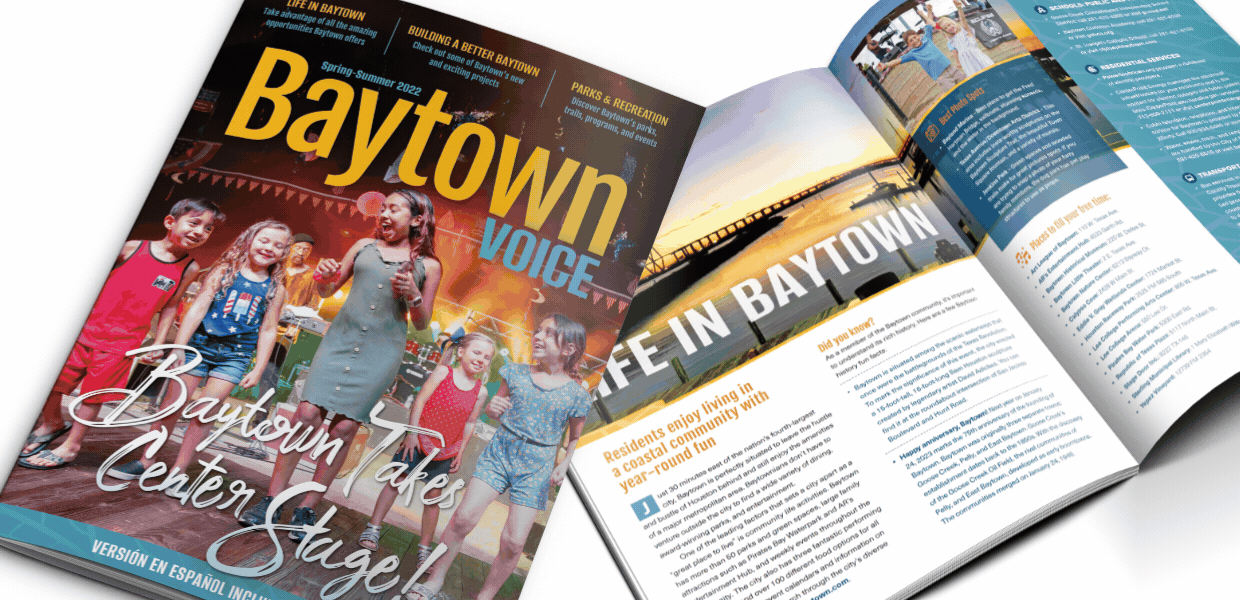FOUR REASONS WHY LOCAL GOV SHOULD STILL USE PRINT
Print is not dead. I’m here to say it, preach it, and explain it. Although we spend much of our lives mingling in the Metaverse and frolicking through Facebook, print remains relevant, resilient, and desired for many reasons. If you’re a local government entity looking to enhance your brand, share your story, or provide important information to your community that you manage and disseminate, here are some reasons that print may be for you.
It’s an Experience
It’s Got Style
It Can Be a Break
Yes, Marketing Matters
1.It’s an Experience
Print is a sensory experience. The touch of a well-designed publication, the sound the pages make as you flip through valuable government content, and the thought of receiving something in your mailbox are all experiences that are not happening on your phone, tablet or computer. Plus, you can pick it up and read it anywhere. There is no need for charging, wires, or batteries.
Kevin Colón is the Town of Superior’s (Colorado) Communications and Community Engagement Manager, and he knows that Superior residents prefer the magazine he publishes, “The people have spoken in Superior. In our most recent communications survey, print media was one of the most popular methods of receiving information.” The Town of Superior publishes a quarterly magazine delivered to all homes in Superior. The publication includes features on Superior residents, briefs from Town departments, and updates on important Town projects, events, and information.
2. It’s Got Style
At Slate, we take pride in the design and style of our publications. We seek out high-resolution, colorful images that evoke emotion. The quality of the paper used also contributes to your brand, style, and perception. Now that there is access to so many sustainable paper options, you can pick a paper option that has been responsibly sourced. Your publication represents your hard work; we want it to look good while containing meaningful content. It will represent you, your team, your community, and the services you provide. It should instill some pride in your city, town, or county. A screen will not offer this level of branding in such a unique and diverse way. Mr. Colón understands that creating a publication that is designed well represents their organization and their community, “Our residents appreciate a well-designed and well-written publication delivered to their home to view at their leisure.”
3. It Can Be a Break
Print can provide a break from screens, reduce eye strain, and allow you to break away from the blue light. Many of your local government fans see your content on social media or the local newspaper’s website. When your fans get their hands on a well-produced publication, it will provide an escape from the metaverse as they immerse themselves in important local government information that you manage, narrate, or produce.
4. Yes, Marketing Matters
Print continues to be a valuable marketing tool. High-quality publications make an excellent impression and enhance your organization’s brand. Your publication can be memorable, visually interesting, and contain content that is timely, accurate, and informative… precisely the way you want it absorbed. You are telling the story.
Summary
I should be clear that print and digital can coexist in our local government world, but print offers some things that a screen simply can’t. Print still plays a key role in our communications, marketing, and storytelling. I suppose I am here to say that print is alive and well. However, how you distribute your publication is critical to the success of your communications efforts. We’ll talk about that next time."
John Litel
Vice President, Slate Communications
John has more than 21 years of experience in creative marketing communications, bringing a solid base of experience and knowledge to the team. From high-tech and consumer goods to non-profits and municipal governments, John has delivered marketing campaigns recognized nationally and regionally.



